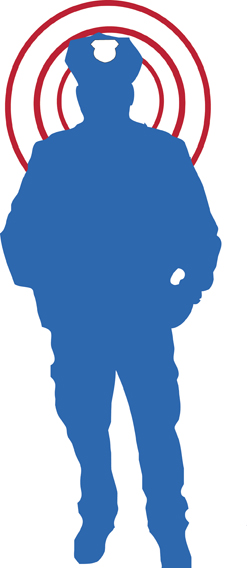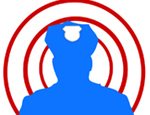By Lena Klamp
Bronx Journal Staff Writer
Originally Published March 2007
Onur Fallaha was living the life he wanted. One year after he arrived in the country of freedom and the city where dreams supposedly come true. Fallaha was satisfied that he had a secure job as a taxi driver in New York City
It was not quite the fruition of his childhood dreams, but it was a possibility to make money and support his family back home in Alexandria, Egypt.
Yet the events of 9/11 dramatically altered Fallaha’s American adventure.
He was about to face a very different side of the city.
“Not even a week after the attacks, people refused to [ride] in my cab and insulted me,” Fallaha says with a strong accent. “I’m Egypt! I am not from the Far East. What have I to do with terrorists?”
The discrimination suffered by Fallaha and many other Muslim-looking people is called racial profiling.
This form of racism originally described the practice of policemen who stopped drivers based on the color of their skin.
Nowadays, racial profiling has reached new dimensions which affect more and more people all over the world. The term has been expanded to include race, religion and even accents to determine whether a person is considered likely to commit a crime.
Racial profiling occurs in almost every context of people’s lives: while driving, walking, shopping, at home or traveling to and from places of worship. It has become a serious issue, threatening Americans from all different cultural backgrounds, many immigrants and visitors, and, under certain circumstances, even white Americans.
Approximately 32 million Americans, a number equivalent to the population of Canada, report they have already been victims of racial profiling.
The story of Fallaha describes the kind of racial profiling that is affecting Muslims nowadays. But all kinds of minorities experience this type of discrimination.
 A new police report on so-called stop-and-frisks, released in February, notes that police officers stopped 508,540 individuals on New York City streets last year. This is an average of 1,393 stops per day, mostly to search for illegal weapons. The data shows that more than half of the people who get stopped are black, and that the numbers keep rising.
A new police report on so-called stop-and-frisks, released in February, notes that police officers stopped 508,540 individuals on New York City streets last year. This is an average of 1,393 stops per day, mostly to search for illegal weapons. The data shows that more than half of the people who get stopped are black, and that the numbers keep rising.
Many victims say stop-and-frisks are usually based on racial profiling.
“It is discriminating! I get pulled over a lot of times even when I’m driving normally and the police search my car,” said James Famodimu, a 19-year-old black student at Lehman College in the Bronx. “I believe they pull me over because they think a black man is more likely to commit a crime than a white boy.”
On the other side, the police reject these reproaches. In a January 24 New York City Council meeting, Police Commissioner Raymond W. Kelley assured council members that his officers were not practicing racial profiling in street stops.
“Officers are stopping those they reasonably suspect of committing a crime, based on description and circumstances and not on personal bias,” Kelley told the council.
Nevertheless, based on a 1999 study which confirmed that there are racial disparities in street stops, a 2001 city law set guidelines to monitor stop-and-frisks activities. It also calls for the Police Department to release to the City Council basic data several times a year about the people who are stopped and the motivations behind these stops. However, this has not regularly happened, yet. In fact, the February 3 report was the first one after a year of silence.
Racial profiling has remained relevant and the complaints have remained consistent, especially since the issue has spread from the streets to every public institution in the country.
At airports, train stations and even government offices, people who may look like criminals or terrorists – based on their skin color, accents and clothing – are subjected to additional scrutiny.
Wearing the typical clothes of a Muslim is sometimes enough to be considered suspicious and to be treated harshly by airport security officials. In some cases, non-Muslims have been kept from boarding an airplane, simply for looking like a Muslim.
And in other cases, Muslims who are obviously not terrorists are excessively scrutinized. For example, an eight-year-old Muslim boy from Tulsa, Oklahoma was separated from his family while airport security officials searched him and dismantled his Boy Scout pinewood derby car. According to Amnesty International, the boy is now routinely stopped and searched at airports.
Opponents of racial profiling say civil rights should not be sacrificed for National Security. In fact, they say U.S. security is weakened by it.
“Racial profiling is a threat to our national security, to the effectiveness and fairness of our criminal justice system, and it is an affront to the dignity of all Americans,” said Amnesty International Board Member and U.S. Marshal Matthew Fogg in an official statement published on the Amnesty International web site.
Yet, many security offiicials say that their work is often misrepresented and that their concerns are ignored by the public.
“Everybody wants to live in a secure America but people complain about our methods,” said Louis Schumann, a security officer at the JFK Airport in New York for 18 years. “If we don‘t do our jobs thoroughly hell knows how many terrorist attacks this country has to face.”
Many law enforcement officers say racial profiling is overly hyped by the media. They acknowledge that statistically, the issue appears to be one of concern. But they say the numbers are not a true reflection of a reality.
“The figures look bad,” said Pedro Merced, a police officer in the Bronx. “But it‘s not about racial profiling. I don‘t see any need to practice racial profiling. My job is to fight crime. I don‘t look for special suspicious types. I look for suspicious action!”
Page designed by Anna Gorelova




